What next in Armenia – Azerbaijan relations  By Benyamin Poghosyan, PhD, Chairman, Center for Political and Economic Strategic Studies By Benyamin Poghosyan, PhD, Chairman, Center for Political and Economic Strategic Studies
More than one year after the 2020 Artsakh War, the future of Armenia–Azerbaijan relations remains vague. Azerbaijan has put forward two demands: Armenia in written form should recognize Nagorno Karabakh as part of Azerbaijan and provide uncontrolled access to Azerbaijan to reach the Nakhichevan Autonomous Republic via the Syunik province. Simultaneously, Azerbaijan has launched the strategy of coercive diplomacy and military blackmail, refusing to free all remaining Armenian POWs and advancing into Armenian territory. The release of POWs is a clearly articulated agreement fixed in the November 10, 2020 trilateral statement. However, Azerbaijan argues that Armenians still languishing in Azerbaijani jails are POWs and are not covered by that statement. Baku successfully merged the POWs’ issue with maps of mine fields, thus forcing Armenia to accept the humans versus maps bargain. READ MORE
New Horizons of Cooperation Between Uzbekistan and the European Union 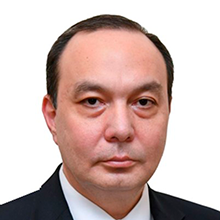 By Eldor Aripov, Director of the Institute for Strategic and Interregional Studies under the President of the Republic of Uzbekistan By Eldor Aripov, Director of the Institute for Strategic and Interregional Studies under the President of the Republic of Uzbekistan
Uzbekistan is on the eve of an important political event - the presidential elections in the country. This major political event was launched at the meeting of the Central Election Commission of the Republic of Uzbekistan, which took place on July 23, 2021. Today, the election campaign is in full swing, and it is taking place in a new political atmosphere. All processes are conducted openly, transparently and in accordance with the national electoral legislation and the time frames specified therein. All five parties that have nominated their candidates are actively promoting their program ideas and platforms. READ MORE
The Russian-Turkish “Co-opetition” in Eurasia and Beyond  By Yeghia TASHJIAN, Beirut-based regional analyst and researcher, columnist, "The Armenian Weekly” By Yeghia TASHJIAN, Beirut-based regional analyst and researcher, columnist, "The Armenian Weekly”
“Co-opetition” was a term coined by Adam M. Brandenburger and Barry Nalebuff to describe a paradoxical strategy of cooperation among competitors, enabling them to collectively achieve mutual gains. It’s a relatively new term in international relations and used occasionally in international trade. Nevertheless, I will be using co-opetition to explain the current status of Russian-Turkish relations.
In foreign policymaking and geopolitical self-perception, Russia and Turkey resemble each other in many ways. Throughout the course of events in the Middle East and South Caucasus, as the West failed to engage with regional developments to resolve conflicts, other regional states such as Iran, Turkey and Russia filled the political vacuum. Hence, the Turkish-Russian interaction in the Middle East and beyond has been partially facilitated by the military and political withdrawal of the US and the European Union’s absence from the region. READ MORE
- December 15, 2021 09:23AM
Is Iran making a comeback to the South Caucasus?  By Yeghia TASHJIAN, Beirut-based regional analyst and researcher, columnist, "The Armenian Weekly” By Yeghia TASHJIAN, Beirut-based regional analyst and researcher, columnist, "The Armenian Weekly”
Since the collapse of the Soviet Union 30 years ago, Iran has patiently and cautiously followed developments in the South Caucasus. Tehran’s main strategic objective has been to prevent US-Israeli penetration in the region, and it has viewed the Russian political and military presence in the region, particularly in Armenia, as a buffer zone against Western and even Turkish expansionist activities. When Turkey started to follow an independent foreign policy and came to terms with sharing power in the region with Russia, Iranian policymakers thought that Turkey—by cooperating with Russia—would reduce western influence in the region and give up its Pan-Turkic and neo-Ottoman claims. However, Iran was mistaken. READ MORE
- November 24, 2021 21:20PM
The Great Game in the Levant: Russia’s Interests in Lebanon  By Yeghia TASHJIAN, Beirut-based regional analyst and researcher, columnist, "The Armenian Weekly” By Yeghia TASHJIAN, Beirut-based regional analyst and researcher, columnist, "The Armenian Weekly”
Like other regional powers, Russia has taken major steps to advance its geopolitical interests in the Levant. With the goals of expanding its influence and control the vast energy resources in the region. Although it only has a naval military base in Tartus (Syria) and no borders on the Mediterranean Sea, Russia has managed to exert its influence around nearby countries, including Lebanon. The perception of Lebanon as part of its Syrian stake encourages Moscow to strive to capitalize on its influence in the region after intervening in the Syrian conflict. In the last few years, Russia started playing a larger role in Lebanon following the growing civil unrest in Syria and the defeat of ISIS. READ MORE
In the South Caucasus, Tehran has its Red Lines Too  By Benyamin POGHOSYAN, PhD, Chairman, Center for Political and Economic Strategic Studies By Benyamin POGHOSYAN, PhD, Chairman, Center for Political and Economic Strategic Studies
For 30 years, Iran has adopted a cautious approach to developments in the South Caucasus, wary of the risk of encirclement. Iran's current military drills on the border with Azerbaijan are meant to send a signal that Tehran has its red lines too.
Since the collapse of the Soviet Union 30 years ago, Iran has carefully followed the developments in the South Caucasus. The strategic goal of Iran was not to allow the region to be a launchpad for the US or Israeli-initiated anti-Iranian activities. Due to the constant US pressure, Iran could not significantly increase its influence in the South Caucasus and directly compete with the US. Meanwhile, the US and Israel were not the only sources of concern for Iran. Turkey's intentions to increase its influence in the South Caucasus through the establishment of the Turkey–Georgia–Azerbaijan strategic partnership was another source of concern. READ MORE
Armenia should Talk to Turkey Directly, but not at the Expense of Artsakh  By Benyamin POGHOSYAN, PhD, Chairman, Center for Political and Economic Strategic Studies By Benyamin POGHOSYAN, PhD, Chairman, Center for Political and Economic Strategic Studies
Turkey’s President Recep Tayyip Erdogan announced on September 19 that Armenia’s Prime Minister Nikol Pashinyan had requested a meeting, via a message transmitted by the Georgian prime minister. Erdogan said that “Armenia should take positive steps” if it wishes for such a meeting. Erdogan is alluding to the opening of the so-called “Zangezur Corridor”, which he believes is a political issue that will be resolved soon, as will Armenia-Azerbaijan relations. The corridor refers to a ground transportation link that would connect Azerbaijan to its exclave of Nakhichevan through Armenia’s southern Syunik region. If we try to translate Erdogan’s diplomatic language, the Turkish president clearly states that he is ready to accept Armenian leadership’s proposal for dialogue if Armenia continues to fulfil Turkey’s demands. READ MORE
Armenian Foreign Policy in the Context of the Transformation of Global Order 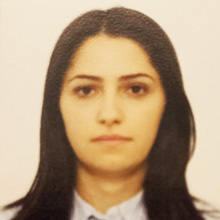 By Lilit Galstyan, Senior Research Fellow, Academy of Political Studies, Yerevan By Lilit Galstyan, Senior Research Fellow, Academy of Political Studies, Yerevan
The end of the Cold War and the collapse of the Soviet Union have ushered in hopes of humanity's happy and harmonious future. The ideas such as "End of history" became very popular both within academic circles and with policymakers. There was a widespread belief that the entire planet would live under liberal democracy, and inter-state conflicts will become bad memories from history. However, the beginning of the XXI century crushed these hopes. Russia - West relations started to deteriorate after the 2004 Orange Revolution in Ukraine, while the 2014 Crimean crisis brought bilateral relations to the lowest point since the end of the Cold War. Meanwhile, the astonishing Chinese economic growth and the emergence of the multi-million middle class did not bring about political changes in China. READ MORE
The Inexorable Drive for Socio-Political Reforms in Uzbekistan  By Eldor Tulyakov, Executive Director, Development Strategy Center, Tashkent By Eldor Tulyakov, Executive Director, Development Strategy Center, Tashkent
In 2016, Uzbekistan's reform agenda's fresh and rather sudden trajectory focusing on political and socio-economic development brought a welcome surprise to much of the international community. Newly elected President, Shavkat Mirziyoyev, rapidly initiated policies based upon the principles of pragmatism and transparency — a shift well received by foreign governments, international organizations, and citizens alike and viewed as a watershed change in a country largely closed to the outside world since independence was obtained in 1991. A new vision of what will define Uzbekistan for future generations emerged, new horizons that will bring long-sought-after potential and opportunities to its people. READ MORE
Armenia's June Elections May Lead to Further Uncertainty and Instability  By Benyamin Poghosyan, PhD, Chairman, Center for Political and Economic Strategic Studies By Benyamin Poghosyan, PhD, Chairman, Center for Political and Economic Strategic Studies
Sunday's parliamentary elections in Armenia are hotly contested, and the electorate is actively engaged in the campaigning. But the election is likely to lead to further uncertainty and continued instability.
The official campaign for the 20 June 2021, early parliamentary elections in Armenia started on 7 June 2021. Twenty-five political entities are contesting the elections – 21 parties and four alliances (blocs). No election in the modern history of Armenia has seen such quantity and diversity of contenders. However, despite this impressive number, only a few participants have a real chance to overcome the threshold to enter Parliament – 5 percent for parties and 7 percent for alliances. READ MORE
Big Armenian Decisions on Future Relations with Azerbaijan  By Benyamin Poghosyan, PhD, Chairman, Center for Political and Economic Strategic Studies By Benyamin Poghosyan, PhD, Chairman, Center for Political and Economic Strategic Studies
Relations with Azerbaijan will be the key foreign policy issue faced by the new government, regardless of the outcome of the forthcoming parliamentary elections. Big decisions on future relations with Azerbaijan will have to be taken soon after the new Armenian government is formed after the 20 June elections.
On 10 May 2021, the Armenian Parliament did not elect a prime minister for the second time in a row. According to the Armenian constitution, Parliament was dissolved, and the President signed a decree to hold snap parliamentary elections on 20 June 2021. It is not easy to predict the precise results of the elections. However, we may assume that Armenia will not have a single-party government after the elections. READ MORE
How Baku Undermines the Credibility of Russia's Mediation Mission 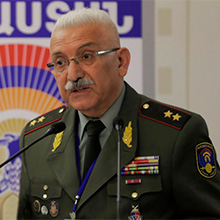 By Lieutenant General (R) Hayk Kotanjian, D.Sc, Full Professor (Strategic Security Studies) By Lieutenant General (R) Hayk Kotanjian, D.Sc, Full Professor (Strategic Security Studies)
Dear Colleagues, I have the honour to draw your attention to the deliberate steps taken by the Baku authorities to undermine the international community's confidence in Russia's mediation mission in the peaceful settlement of the Armenian-Azerbaijani relations and in the South Caucasus region. Another irrefutable evidence of this, among many facts, is the provocation of the Azerbaijani authorities with the violation of the Republic of Armenia’s state border regime, which defiantly followed right after the visit of Russian Foreign Minister Sergey Lavrov to Azerbaijan on May 10-11, 2021 and his departure from Baku. READ MORE
The EU Will Not Act as a Counterweight to Russia in Either Armenia or NKR  By Benyamin Poghosyan, PhD, Chairman, Center for Political and Economic Strategic Studies By Benyamin Poghosyan, PhD, Chairman, Center for Political and Economic Strategic Studies
The EU is neither willing nor capable of countering Russia or Turkey in Armenia and Azerbaijan and will not make efforts to decrease Russian influence in Armenia and the unrecognised Nagorno Karabakh Republic.
EU-Armenia relations entered a new phase in 2009 when the EU launched its Eastern Partnership Initiative. Armenia successfully negotiated an Association Agreement with the EU and was going to sign it in autumn 2013. The growing tensions between Russia and the West forced Armenia to cancel the signature, not to ruin relations with its strategic ally. Armenia and the EU started a new round of negotiations in late 2014, culminating with the signature of the Comprehensive and Enhanced Partnership Agreement (CEPA) in November 2017. READ MORE
The Realistic Policy of Armenia towards Nagorno-Karabakh  By Benyamin Poghosyan, PhD, Chairman, Center for Political and Economic Strategic Studies By Benyamin Poghosyan, PhD, Chairman, Center for Political and Economic Strategic Studies
The 2020 Karabakh war has dramatically changed the geopolitical status quo in the South Caucasus. Discussions have been underway in Armenia and the Armenian Diaspora about the reasons for the catastrophe and those responsible. Most probably, military defeat will be a key topic during the upcoming June 2021 snap parliamentary elections. The thorough analyses of what happened before, during, and after the war are mandatory tasks to be fulfilled. However, the key for Armenia now to elaborate a new policy towards the Karabakh conflict, taking into account the war results. The most significant issue here is to develop a realistic policy based on accurate calculations, Armenia’s resources, and the interests of external players; otherwise, Armenia may face another catastrophe. READ MORE
Beijing’s Long Road to the Gulf Region  By Fuad Shahbazov, Baku-based independent regional security and defence analyst By Fuad Shahbazov, Baku-based independent regional security and defence analyst
Energy cooperation has been a key aspect of growing bilateral cooperation between China and the Arab states of the Gulf region for the past several years. Since 1996, China has become a net importer of crude oil and, as the second‑largest energy consumer in the world after the United States, is now the third‑largest importer of oil after the United States and Japan. Therefore, it should not come as a surprise that China is eying a deep and strategic partnership with the states of a region that sits on top of the world’s largest proven crude oil and natural gas reserves. READ MORE
Is Armenia’s Democracy on Borrowed Time?  By Anna Ohanyan, PhD, non-resident senior scholar in the Russia and Eurasia Program of Carnegie By Anna Ohanyan, PhD, non-resident senior scholar in the Russia and Eurasia Program of Carnegie
Reeling from a military defeat in a war with Turkey-backed Azerbaijan, can Armenia’s hard-won democracy withstand domestic political turmoil?
The recent agreement to cease hostilities in Nagorno-Karabakh has created a new status quo in the South Caucasus. Azerbaijan has recovered territories it lost in the 1990s when the conflict over the enclave first erupted, in the shadow of the Soviet collapse. A new modus vivendi between Russia and Turkey is shaping regional geopolitics. Once shaky authoritarian rule in Azerbaijan is now more deeply entrenched. It can also count on the support of Turkey, another increasingly authoritarian player in the neighbourhood. This stronger and deeper authoritarian presence in the region will place significant stress on nascent democracies in Georgia and Armenia for years to come. READ MORE
United States-Georgia Charter on Strategic Partnership: Defence and Security 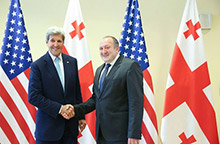 By Eugene Kogan, Tbilisi-based defence and security expert By Eugene Kogan, Tbilisi-based defence and security expert
Established in 2009, the United States-Georgia Charter on Strategic Partnership is based on four core pillars: Defense and Security Cooperation; Economic, Trade and Energy Cooperation; Strengthening Democracy; and Increasing People-to-People and Cultural Exchanges. As part of these two countries’ defence and security cooperation, the US provides financial support to the Georgian military, support for Georgia’s territorial defence and sovereignty, and, ultimately, for Georgia’s procurement of US defensive weapons. READ MORE
Key Challenges for the Armenian Foreign Policy in 2021  By Benyamin Poghosyan, PhD, Chairman, Center for Political and Economic Strategic Studies By Benyamin Poghosyan, PhD, Chairman, Center for Political and Economic Strategic Studies
2020 was disastrous for Armenian foreign policy. The defeat in the 2020 Karabakh war which resulted in the November 10 capitulation has sent shock waves across Armenia and Diaspora. Within only 44 days Armenia lost what it gained during the 1992 – 1994 first Karabakh war. Significantly reduced Nagorno Karabakh was effectively turned into a Russian protectorate and its current status can be compared with Karabakh status in 1989 when the Soviet Union put Karabakh under the direct Kremlin control through the establishment of the Special Committee led by Mr. Arkadi Volski. Now approximately 3000 square kilometres of territory with some 100,000 Armenians there is again de facto governed by the Kremlin, while the head of the Russian peacekeeping mission LtG Muradov had assumed the role of Volski. READ MORE
Perspectives of the US-China relations: Implications for Armenia  By Benyamin Poghosyan, PhD, Chairman, Center for Political and Economic Strategic Studies By Benyamin Poghosyan, PhD, Chairman, Center for Political and Economic Strategic Studies
The four years of President Trump’s rule will most probably remain in the history of the United States as years of unprecedented turmoil. It started from Presidential executive orders to ban visas for several countries, continued with the tumultuous Russian investigation and impeachment process, almost permanent skirmishes with the key US allies, and ended up with an attack on the Capitol, suspension of the incumbent US President’s Twitter, Facebook and Instagram accounts, and the prospects of the second impeachment in the last days of the current administration. These extraordinary developments may force many to conclude that President Biden will make significant policy shifts in all major domestic and external issues. READ MORE
Political Crisis in Georgia after the Parliamentary Elections 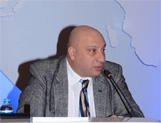 By Nika Chitadze, PhD, Professor at the International University of the Black Sea, Tbilisi By Nika Chitadze, PhD, Professor at the International University of the Black Sea, Tbilisi
As it is well known from recent media reports, a new political crisis has emerged in Georgia after the October 31, 2020 parliamentary elections. The main reason for this crisis is the fact that the opposition parties have claimed that the Central Election Commission and the ruling party “Georgian Dream” have falsified the election results and have usurped the power. The National Democratic Institute and the American Republican Institute have expressed their critical views in this regard. A relatively soft position was stated by the OSCE Office for Democracy and Human Rights and the Council of Europe.
READ MORE
Nagorno-Karabakh Becomes Russia's Latest Protectorate in the South Caucasus  By Benyamin Poghosyan, PhD, Chairman, Center for Political and Economic Strategic Studies By Benyamin Poghosyan, PhD, Chairman, Center for Political and Economic Strategic Studies
Azerbaijan, Turkey, and Russia all gained something as a result of the second Karabakh war, while Armenia and Nagorno-Karabakh lost almost everything.
The second Karabakh war ended with catastrophic results for Armenia and the Nagorno-Karabakh Republic. The trilateral statement signed by Russian, Armenian, and Azerbaijani leaders on November 10 was a clear capitulation of the Armenian sides. During the 26 long years of negotiations under the auspices of the OSCE Minsk Group, several settlement plans have been elaborated and offered to the conflict sides […]. However, none of them were as disastrous for Armenia and the Nagorno-Karabakh Republic as the trilateral statement of November 10, 2020. READ MORE
The True Nature of Sino-Russian Relations 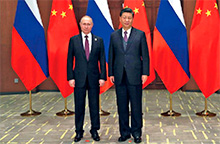 By Eugene Kogan, Tbilisi-based defence and security expert By Eugene Kogan, Tbilisi-based defence and security expert
While Russia is certainly viewed by Beijing as a reliable economic and trade partner with its oil, gas and arms exports to China, the Chinese do certainly not overemphasise this relationship. Instead, China sees Russia as a waning power with its vast territories, supported by armed forces and nuclear weapons, while at the same time prone to endemic corruption and unable to pursue meaningful economic, political and social reforms. READ MORE
- November 26, 2020 08:51AM
China, Russia and the EU: Forging a Cooperative Relationship  By Elkhan Nuriyev, PhD, Eastern Europe-Global Area (EEGA) fellow at Leipzig University By Elkhan Nuriyev, PhD, Eastern Europe-Global Area (EEGA) fellow at Leipzig University
For Russia, China’s Belt and Road Initiative is less of a threat than an opportunity. Moscow is receptive to the BRI’s ability to help create a multipolar world as it bolsters China’s global stance to counterbalance American hegemony. The Kremlin also views the BRI as a means to attract Chinese investment and foster renewed Russian influence over the European Union’s eastern zone. One of the important buckles of the Silk Road Economic Belt – the overland component of China’s ambitious Belt and Road Initiative (BRI) – is the Eastern Partnership (EaP) region, which represents an essential link between Asia and Europe. Developing this stage means enhancing commercial relations with six partner countries and an infusion of investment funds in several emerging-market economies. READ MORE
Iran–Turkey Rivalry in the Middle East: The Case of Lebanon  By Benyamin Poghosyan, PhD, Chairman, Center for Political and Economic Strategic Studies By Benyamin Poghosyan, PhD, Chairman, Center for Political and Economic Strategic Studies
Iran and Turkey have a long history of rivalry in the Middle East. As two key regional powers, they were vying for influence and seeking to expand their spheres of influence. After WWII both Iran and Turkey had an anti-Soviet attitude and participated in the Central Treaty Organization with the key goal to contain the Soviet Union. The Cold War has halted bilateral competition, while the 1979 Islamic Revolution in Iran has significantly changed the regional balance of power. READ MORE
- September 23, 2020 08:48AM
Covid-19 Is an Important Test for Azerbaijani Unity 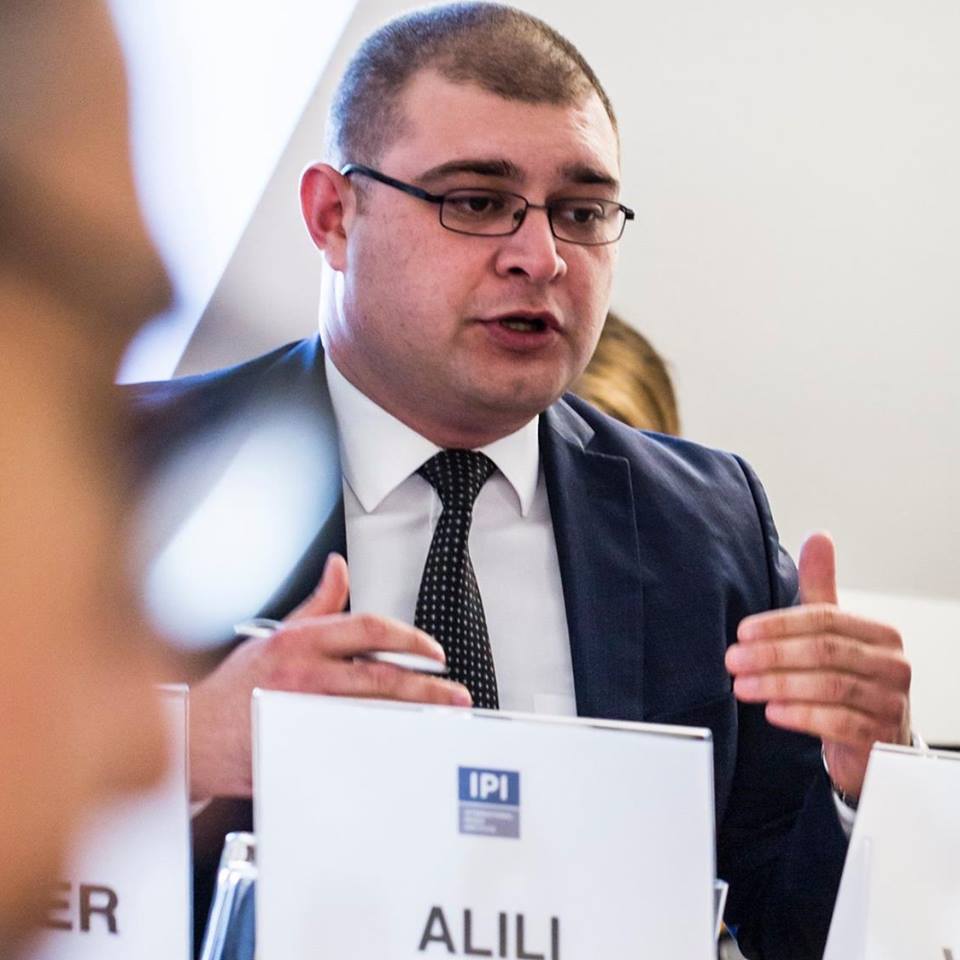 By Ahmad Alili, Head of Research, Caucasus Policy Analysis Center, Baku By Ahmad Alili, Head of Research, Caucasus Policy Analysis Center, Baku
The COVID-19 pandemic has created interesting qualitative and quantitative changes at the top of Azerbaijan's public agenda. Following the snap parliamentary elections in February, the newly elected Parliament, which includes a number of new faces, is tasked to address the challenges the country is facing. In a speech at the opening of the Parliament, President Aliyev sent clear messages to the public servants, political parties and youth. READ MORE
- September 12, 2020 10:32AM
|
|